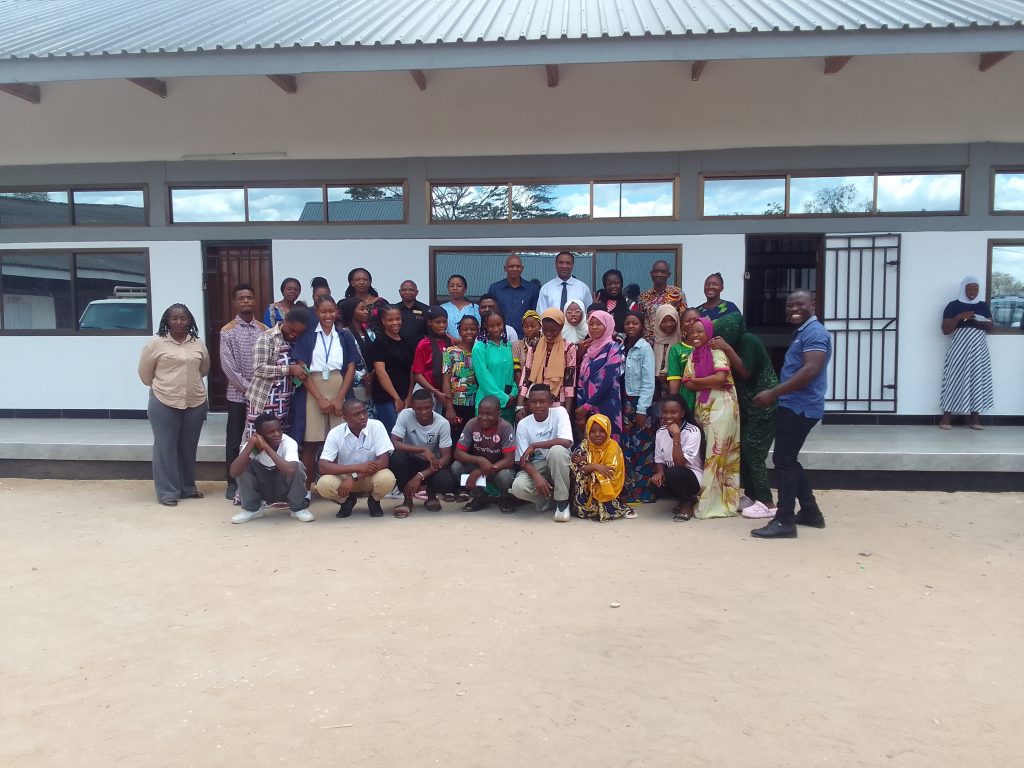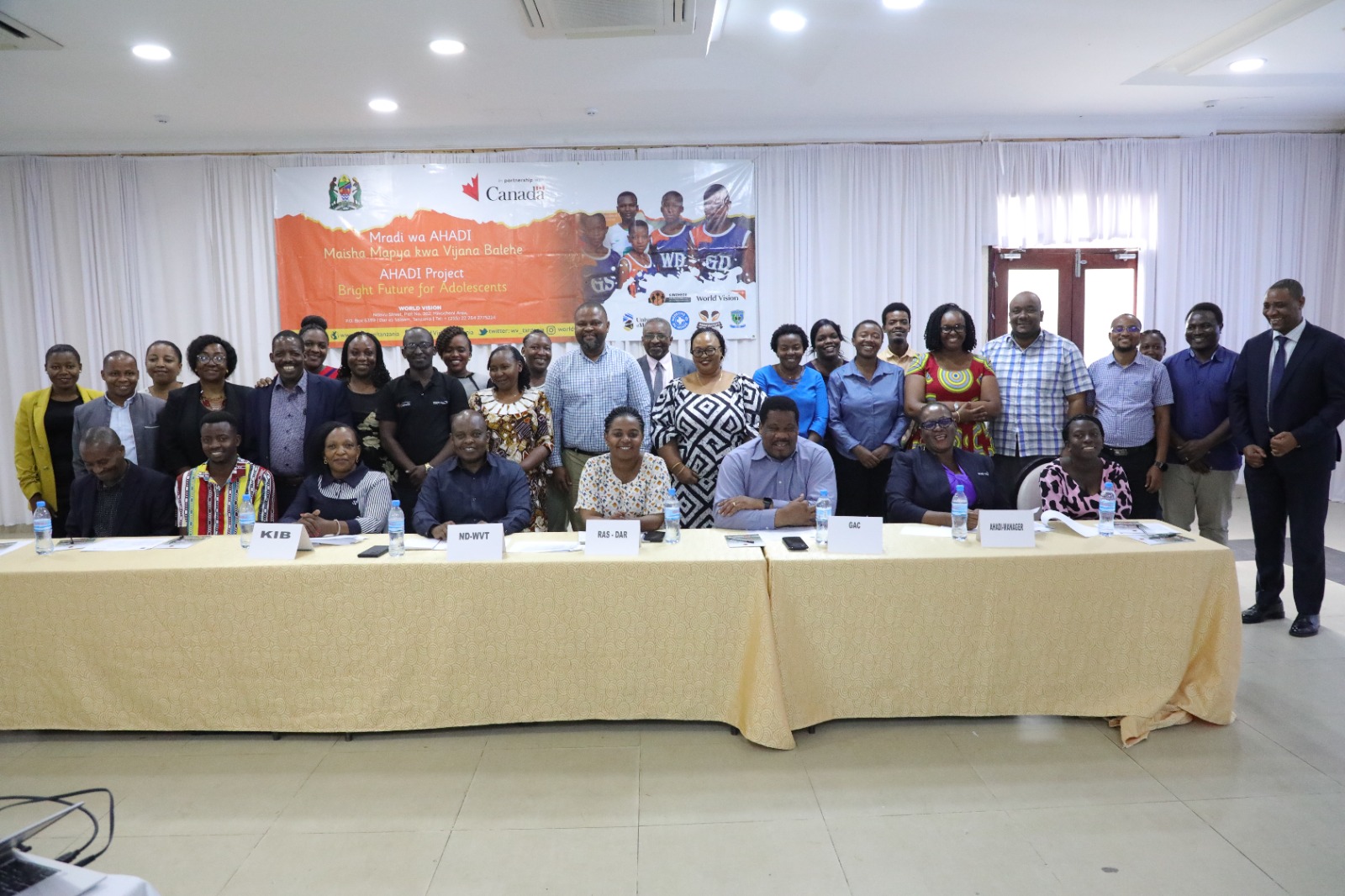AHADI Project: Economic Empowerment Component
World Vision Canada has received funding support from Global Affairs Canada to implement the Adolescent Gender transformative (AHADI) project) in Dodoma and Dar es Salaam regions. The overall goal of the AHADI project is increased realization of sexual and reproductive health and rights (SRHR), wellbeing and dignity of marginalized adolescent girls and boys (aged 10-19) in municipalities from the two regions. In implementing this project, World Vision Tanzania is collaborating with various partners: Medicine De Mundo (MDM), Kibaha Institute of Business (KiB), Babawatoto Organization (BAO), Kiota Women Health and Development Organization (KIWOHEDE), University of Manitoba (UM). The government of Tanzania, a partner in the project, ensures that the project is aligned with Government policy.
The project has three intermediate outcomes: (i) Enhanced agency of adolescent girls to make decisions on Sexual and Reproductive Health Rights (SRHR), prevention of Gender Based Violence (GBV) and protection for Gender Equity and Empowerment; (ii) Increased equitable utilization of gender-responsive Adolescent Sexual Reproductive Health Services, including HIV/STI, GBV and nutrition services by adolescent girls 10-19 years and; (iii) Increased gender equitable participation of vulnerable adolescents aged 15-19 years, particularly girls, in labor market and entrepreneurship programs. The Kibaha Institute of Business (KiB), a registered vocational training institute will contribute to the realization of the AHADI project objectives by implementing activities focusing on economic empowerment. Other partners will focus on the first two intermediate outcomes. The targeted age group for economic empowerment (those aged between 15 to 19 years) consists of adolescents, who are in school and those out of school.
The AHADI project assumes that increased engagement of adolescent girls and boys in economic activities will reduce their vulnerability to SRHR issues, bolster their familial and community status, and reduce adolescent girls’ and boys’ need to engage in risky behaviors including transactional sex, substance abuse and violence. Indeed, in a rapid gender and human rights assessment conducted for the project, adolescent girls said economic opportunities must be prioritized for girls, to improve their economic status and prevent them from living in poverty, which has resulted in their being subjected to sexual GBV and placing them at greater risk of early marriage, pregnancy, and HIV among others. AHADI project assumes that enhancing employability and the imparting of entrepreneurship skills will enable adolescents to become more economically self-sufficient, thus enabling them to circumvent the mentioned risks. Realization of this intermediate outcome calls for implementation of interrelated empowerment activities: experiential entrepreneurship training, access to finance, coaching and mentorship, internship/apprenticeship, and networking/marketing among others. Successful execution of these activities requires active engagement and involvement of various stakeholders.


